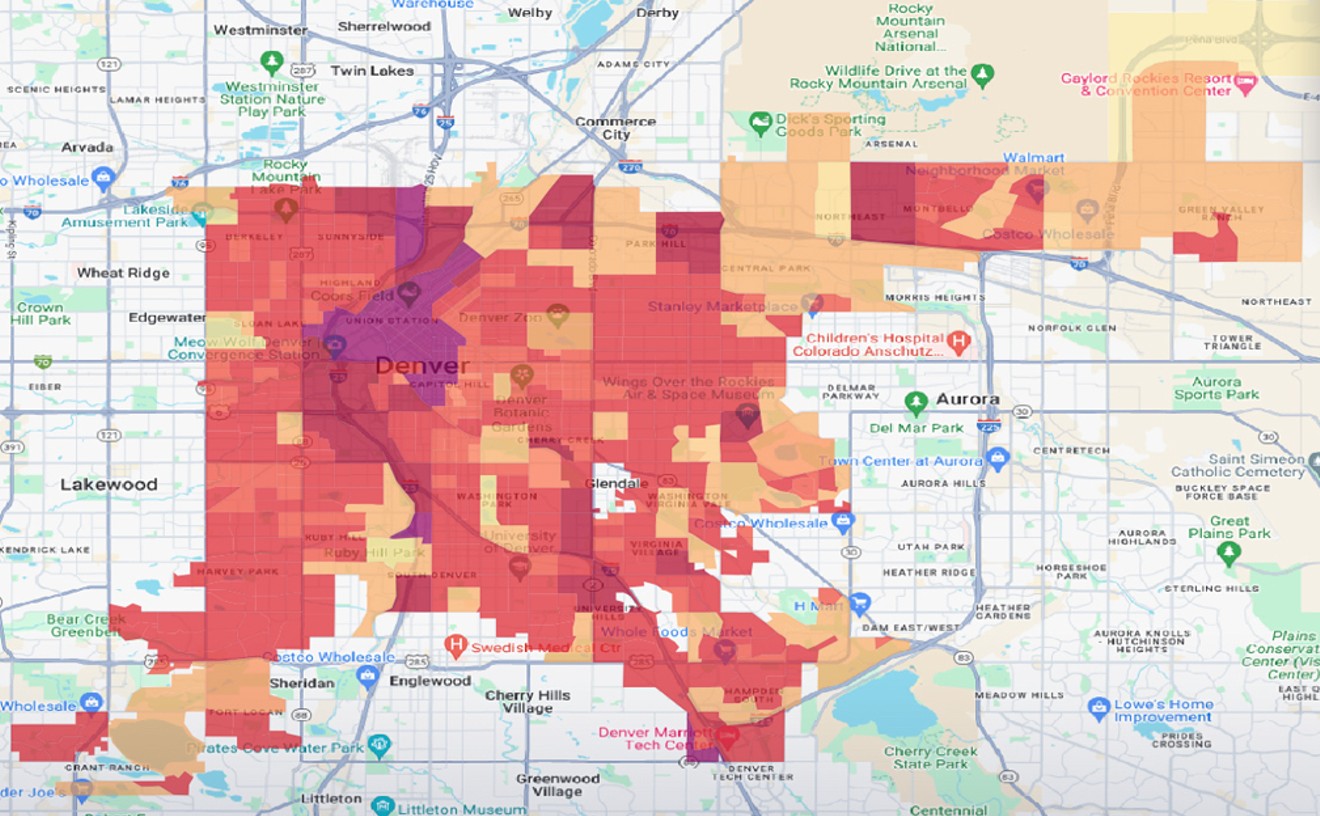Community Solutions, a national nonprofit that focuses on homelessness, just announced that Fremont County has achieved "functional zero" for veterans who are homeless, making it just the twelfth community in the country to do so.
"They really had a coalition of the willing," Community Solutions' Ian Fletcher says of Fremont County. "When we say 'functional zero,' it means the system is equipped to address the amount of people who are experiencing homelessness and has the resources to connect them to get them rapidly rehoused again."
Government officials and nonprofit workers in Fremont County have been working with Community Solutions since October 2019 as part of the Built for Zero project, a framework created by Community Solutions to end homelessness across the country.
Cañon City is located about an hour southwest of Colorado Springs and is home to several prisons, including Colorado State Penitentiary, that provide jobs for many of the area's residents. Loaves and Fishes Ministries runs the county's only emergency homeless shelter, in Cañon City, which has seventeen beds and is typically full every night.
"We applied just because we knew that we wanted to end homelessness and we knew that what we were doing wasn’t making the greatest impact. We needed help. We needed technical assistance. That’s what drove us to apply for it," says DeeDee Clement, executive director of Loaves and Fishes, which has a twenty-person staff.
When Clement and her colleagues started working with Community Solutions, they knew of a dozen veterans experiencing homelessness in Fremont County, which has a population of around 50,000. As time went on, they identified another 17, for a total of 29.
Community Solutions worked with Fremont County service providers to help them become more proactive with street outreach and to track homelessness cases in a more up-to-date, individualized way. "Now we’re much more proactive," explains Clement. "We have weekly case conferencing for all of our veterans, and we talk about the next step. What do we need to do today or over the next three days to get this person into housing?"
While Fremont County service providers worked with Community Solutions, the Central Colorado Housing office for the Upper Arkansas Area Council of Governments hired a housing navigator to help identify and negotiate with landlords who would accept housing vouchers.
"Their main job is locating properties and rentals that would fit into the guidelines of our programs," says Amanda Allen, regional housing director for Central Colorado Housing, noting that the new position has been key to helping reduce veteran homelessness in the area.
Out of the 29 veterans experiencing homelessness, the team was able to help fourteen find housing. They lost contact with twelve others on the list and, after failing to find them through outreach, crossed them off after ninety days. "There were some folks that maybe were just passing through our area that we did a housing assessment on," says Clement. "We felt like we had done due diligence."
Now, just three veterans remain homeless, which nets Fremont County the rate of "functional zero."
Metro Denver, where Community Solutions estimates there are approximately 500 veterans experiencing homelessness, has been working under the Built for Zero framework since 2015. In addition to Fremont County, the nonprofit is working with seven other communities across Colorado, including Pueblo and Mesa counties.
Community Solutions often encourages communities to focus first on ending veteran homelessness since there are more resources available to veterans, such as those accessible through the U.S. Department of Veterans Affairs.
Veterans comprise a disproportionate percentage of the homeless population across the country. But service providers have been chipping away at veteran homelessness; the federal government reports a 47 percent reduction between 2010 and 2016.
And now that they've tackled veteran homelessness, service providers and government officials are ready to take on chronic homelessness in Fremont County, where an estimated 140 people are still homeless.
"It’s particularly important for us in reaching 'functional zero' because most of those that are on our name-by-name list, although they are considered transient, many of them are from Cañon City," says Cañon City Mayor Ashley Smith. "They grew up here, they are residents here, they are our neighbors, our brothers and sisters."
[
{
"name": "Air - MediumRectangle - Inline Content - Mobile Display Size",
"component": "12017618",
"insertPoint": "2",
"requiredCountToDisplay": "2",
"watchElement": ".fdn-content-body",
"astAdList": [
{
"adType": "rectangle",
"displayTargets": "mobile"
}
]
},{
"name": "Editor Picks",
"component": "17242653",
"insertPoint": "4",
"requiredCountToDisplay": "1",
"watchElement": ".fdn-content-body",
"astAdList": [
{
"adType": "rectangle",
"displayTargets": "desktop|tablet"
},{
"adType": "rectangle",
"displayTargets": "desktop|tablet|mobile"
}
]
},{
"name": "Inline Links",
"component": "18838239",
"insertPoint": "8th",
"startingPoint": 8,
"requiredCountToDisplay": "7",
"maxInsertions": 25
},{
"name": "Air - MediumRectangle - Combo - Inline Content",
"component": "17261320",
"insertPoint": "8th",
"startingPoint": 8,
"requiredCountToDisplay": "7",
"maxInsertions": 25,
"watchElement": ".fdn-content-body",
"astAdList": [
{
"adType": "rectangle",
"displayTargets": "desktop|tablet"
},{
"adType": "rectangle",
"displayTargets": "desktop|tablet|mobile"
}
]
},{
"name": "Inline Links",
"component": "18838239",
"insertPoint": "8th",
"startingPoint": 12,
"requiredCountToDisplay": "11",
"maxInsertions": 25
},{
"name": "Air - Leaderboard Tower - Combo - Inline Content",
"component": "17261321",
"insertPoint": "8th",
"startingPoint": 12,
"requiredCountToDisplay": "11",
"maxInsertions": 25,
"watchElement": ".fdn-content-body",
"astAdList": [
{
"adType": "leaderboardInlineContent",
"displayTargets": "desktop|tablet"
},{
"adType": "tower",
"displayTargets": "mobile"
}
]
}
]













